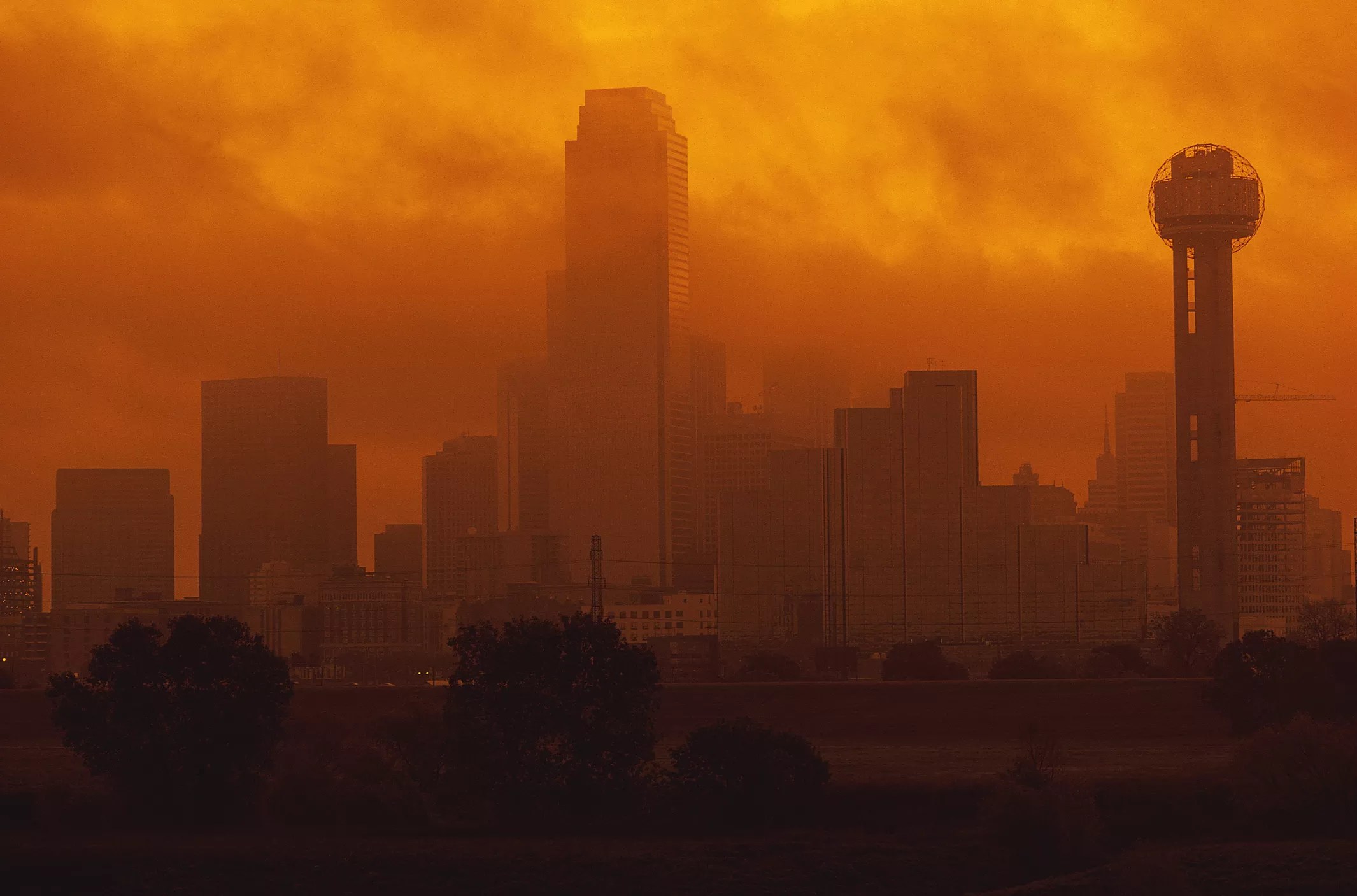
Getty Images

Audio By Carbonatix
Four Texas counties were recently flagged by the Texas Commission on Environmental Quality for exceeding federal air quality standards. Some environmental justice advocates worry that recent attacks on diversity, equity and inclusion initiatives could prevent regulators from getting a full picture of which neighborhoods are most harmed by excessive pollution.
In a recommendation that will be submitted to the Environmental Protection Agency in early February, the TCEQ is proposing both Dallas and Tarrant counties be required to improve their air quality. If the proposal is accepted, Texas will have several years to develop a plan that would bring each county’s air quality into compliance with federal standards. That plan will also have to go through EPA approval.
For Caleb Roberts, executive director of the Dallas environmental justice group Downwinders at Risk, TCEQ’s assessment was a necessary and worrying step. Four counties were included in the non-compliance report, but eight others were excluded because of bad air monitoring data or “exceptional events.”
To Roberts, the fact that TCEQ’s leniency was not extended to Dallas County signals we “really have a problem.”
Embodying the link between DEI and environmental justice, Roberts is an advocate for hyper-local air quality monitoring because of what it reveals about historically disadvantaged areas. While general monitoring can establish that a large area like Dallas County has an air quality problem, targeted monitors have often revealed that historically Black and brown neighborhoods like Joppa or West Dallas are more likely to be located next to industrial polluters than wealthier, whiter neighborhoods.
“Various neighborhoods and especially neighborhoods of color have just totally different experiences on how that air is affecting them on a day-to-day basis,” Roberts said. “The fact is that the county and multiple counties in the Metroplex are in non-attainment, but it doesn’t necessarily even speak to people’s lived experience day-to-day in their neighborhoods and communities.”
Roberts worries that the shuttering of DEI offices could keep Dallas’ most at-risk neighborhoods from getting much needed, specialized attention. When President Donald Trump signed an executive order ending all federal DEI programs on Jan. 20, environmental justice-related offices and positions were also slashed.
Trump has taken other steps that worry environment advocates.
In the first days of his second term, Trump ordered massive expansions of oil, gas and coal extraction and signaled a plan to withdraw from the Paris Agreement, which guides international greenhouse gas emissions. Trump has also overturned a number of Biden-era initiatives, which could impact Dallas’ air quality directly if the president reverses last year’s change in particulate matter standards.
Particulate matter is the dust and soot particles that make up pollution; last year the EPA lowered the federal standard from 12 to 9 particulate matter micrograms per cubic meter annually. The pollution particles are small enough to get through facial masks and into the bloodstream, and have been linked to health problems like heart disease and asthma.
The EPA’s adjustment was the first time the U.S. has updated the federal standard for allowable particulate matter since 2012, a change that was supported by former President Joe Biden’s environmental agenda that Trump seems keen to undo. Roberts believes it was that new standard that drew the TCEQ’s attention to Dallas and Tarrant counties, but he is uncertain whether, under a new administration, federal regulators will force the counties to take accountability.
In an interview with the Texas Tribune, Daniel Cohan, an associate professor at Rice University, said he believes that Trump’s return to office could result in more relaxed standards for regulating agencies, hence the TCEQ’s decision to leave eight counties out of their mitigation recommendation report.
“TCEQ may be hoping that the Trump administration will be more lenient in letting counties off the hook for their high pollution,” Cohan said.
Even if the changing federal leadership poses a danger to DEI and environmental justice, Dallas’ local government has made strides in recent years. Roberts said he believes the current city council has been better “than it has ever been” at focusing environmental justice in its plans, even if there is still work to be done.
A key part of addressing Dallas’ air quality moving forward, he believes, is the council standing up for widespread policy changes even when facing loud opposition.
When the ForwardDallas land use plan was adopted by the council last year, a large number of Dallasites spoke out against the document. Roberts spoke in favor of it, advocating for provisions that took historic, geographic injustices into account as part of a broader equity effort.
“Is the City Council going to (continue to) stand up and say, ‘No, this is in the best interest of our city, and I know this is going to affect people, but we have to move forward,'” Roberts said. “That is the kind of energy we need to protect us moving forward. And if we don’t have that, then we won’t get the benefit.”